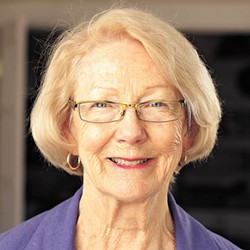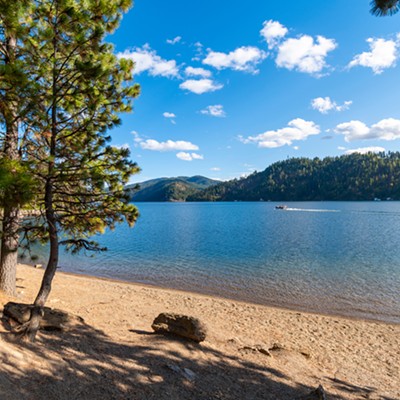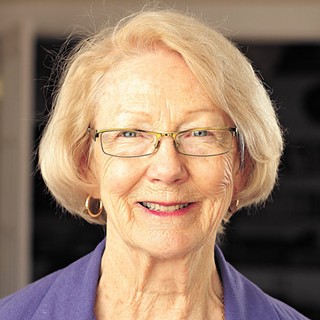Welcome back to another mind-boggling session of the Idaho Legislature. It's been a year since I reported on the workings of that body. At that time, last session's brand-new science standards had just been rejected and sent back for a rewrite. The Republican majority believed that the concepts of evolution and climate change are far too revolutionary for Idaho's children's to bear.
One year later, the 2017 session doesn't look any more promising for real science. On Feb. 9, the Idaho House Education Committee considered the revised science standards and deleted the section on climate change because "both sides of the story are not presented." Alternative facts are quite in style these days, and Idaho has been ahead of the curve in promoting them.
There are lots of alternative facts that are near and dear to us all. Santa Claus brings Christmas presents to good children; the Easter bunny lays eggs; the tooth fairy pays for lost teeth. There are many shades of gray. But science is the world of facts, not fairy tales. Young minds need to be taught to respect the distinction between truth and fiction.
The acknowledged scientific truth is that the earth's atmosphere is warming up every year and human activity is accelerating the change. Each year the numbers inch up, each year the temperature is warmer than the last, with 2016 being the warmest year in recorded history.
While everything today seems to have a political slant, the recognition that the globe is warming should not be a political football. The consequences are already evident. It is a fact that the glaciers are melting. It is a fact that the seas are rising. It is a fact that storms are becoming more intense, and episodes of drought and flooding are on the increase. It is a fact that we humans, burning fossil fuels, are a major cause of this global warming.
There isn't another side to the story.
Teachers should not be expected to shield students from reality. Teachers are there to open students' minds. Even a first-grader can be taught that the earth needs proper caretaking, and that each of us can help by planting trees, by turning off the lights and by recycling piles of papers, cans and cardboard. Students need to understand the connection between energy use that puts more carbon into the air and the warming of the globe.
Thirty-four states and the District of Columbia have completed climate action plans, detailing how each state can take steps to reduce its contribution to climate change. Idaho does not have a climate action plan. All the states bordering Idaho, except Wyoming, have completed climate action plans. Idaho doesn't even list climate change in the glossary of its Department of Environmental Quality website.
Neighboring Washington, on the other hand, has had a climate change action plan in place since 2008, paving the way for a low-carbon future.
Better Idaho (betteridaho.org) quotes a new member of the Idaho Legislature, Republican Sen. Dan Foreman, R-Moscow, who wrote this to a constituent: "I hope the legislature enacts legislation to eliminate this ridiculous nonsense about global warming and climate change from all our textbooks. The left-wing has created a new religion, and it's called 'the environment.'"
Sen. Foreman doesn't speak for the entire state of Idaho. The Idaho Conservation League has created a fund called My ID that will allow the organization to address "the planet's greatest challenge" in two directions. One is to work to eliminate the causes of climate change within the state — principally burning fossil fuels. The other is to mitigate the effects of climate change on Idaho lakes, streams and human water use.
Freshman Rep. Paul Amador, R-Coeur d'Alene, stepped out in the House Education Committee with a motion to pass new pro-science standards as proposed by a committee of teachers, school administrators and interested members of the public. So far, no action has been taken.
Meanwhile, House Assistant Minority Leader Ilana Rubel, D-Boise, was quoted in the Idaho Statesman: "Not only do we owe it to our children to teach them 21st century science, but we owe it to the farmers, foresters and citizens of Idaho to take this issue seriously and not bury our heads in the sand."
Idaho doesn't have coastal shorelines to protect from rising waters, but it does have forests to protect from wildfires triggered by rising temperatures. Idaho has fertile soils and a healthy agricultural economy to protect from water shortages. Idaho, and the ribbon of states that roll down from North Dakota to Texas, have every reason to get on the green bandwagon and face the future.
At this writing, there is still time for the Idaho Senate to attempt a last-minute save of the proposed K-12 science standards. The kids will be all right with the truth. Global warming is here to stay.
There is no planet B. ♦


















